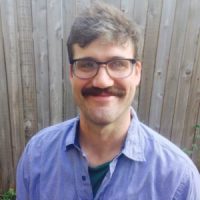Dr. King Won’t Rise, We Have to Rise
The Reverend Martin Luther King’s only visit to Fort Worth was in October of 1959 at the Majestic Theatre on Commerce Street where he delivered a speech entitled A Great Time to Be Alive. Less than four years later, in his Letter from Birmingham Jail, he would write, “Injustice anywhere is a threat to justice everywhere.” On a cold night at TCU on what would have been Dr. King Jr.’s 89th birthday had he not been assassinated on that balcony in Memphis on April 4th, 1968, the bundled-up crowd exceeded the capacity of the Brown-Lupton University Union Auditorium, leaving many in attendance standing along the wall in the back for the premiere of the student-produced documentary, 76105: Dr. King Won’t Rise.

photo credit: Jeffrey Wooten
The documentary tells the story of the Stop Six neighborhood in East Fort Worth and the growth of Community Frontline, a network of community leaders dedicated to solving the various concerns and issues that have prevented the area from flourishing for far too long. The title comes from a thesis the group returns to often: leaders from the past are gone, and it is up to current generations to actualize effective change.
This core group forged a sense of brotherhood at an early age, offering one another support and stability in an area where male involvement was at a low level. Without proper opportunities for engagement with male role models, Dante Williams, Frank Moss, Quinton Phillips, and a crew of classmates, known as “World Wide P,” leaned on one another on their way to becoming successful young men. With success and experience, they returned to Stop Six and sounded an inspiring call to action. With these young men as their these impressive subjects, TCU students have crafted a story that is emblematic of a fresh perspective on cultural and community integration.
Led by Faculty Advisor Charity Robinson, TCU’s Documentary Production class developed the project from conception into a half-hour piece showing Stop Six’s history and the positive impact of Community Frontline’s dedicated involvement in the area. Producer Brittney Cech and writer Madeline Black spoke beforehand about the technical learning process of creating of the documentary, describing the complexities of scheduling interviews and writing a script based on the myriad underlying narratives they found in those conversations. This proved more challenging than either of them anticipated. At the same time, many of the students voiced the importance of working in and with a neighborhood of Fort Worth far removed from TCU’s lovely campus and the experiences of many of their classmates. The connections that have been forged between the students and the community at the heart of their documentary was palpably transformational for everyone involved.

photo credit: Jeffrey Wooten
These students captured a story of triumph and hope that resonates with the power of friendship behind Community Frontline’s organization, which continues to activate positive change around them.
An example of this process can be seen in their approach to police engagement and race relations which had deteriorated nationally to tragic and violent levels. In the years since Ferguson, Missouri, Community Frontline has opened up a dialogue with the Fort Worth Police Department and found allies across racial lines. One of these allies is attorney Derek Carson, featured in 76105: Dr. King Won’t Rise, who moved his family to the area in order to work alongside this brotherhood and raise their families together.
Torry Finley, a member of Community Frontline, said after the screening, “Once I heard what they were doing, I couldn’t not go. It was more organized than my original expectations, and I was down immediately. We were talking to Officer Johnson about going to funerals and realized we are all losing too many people. Usually, when we have that sort of dialogue, it is from a compromised position.” He grows animated describing the organization’s momentum and his continued efforts as a representative to keep up with the story as it is unfolding in what he describes as, “cathartic and unifying meetings.”
Just as it worked for the collective World Wide P as young men, so too functions Community Frontline’s expanding involvement in the community which breaks down into units focused on including criminal justice, education, health and employment, as well as others which serve as as practical reinforcements for a population which has often found itself at odds with the institutions surrounding them.

photo credit: Jeffrey Wooten
After the screening of 76105: Dr. King Won’t Rise, members of cast and crew joined one another onstage to answer questions from the audience.
Malcolm X, another civil rights leader mentioned in the documentary, notably said, “If you don’t stand for something, you’ll fall for anything.” This call to action is recursive and can be heard by anyone if they listen closely enough. Community Frontline, as seen in this documentary relaying their powerful message, represents a progressive engaged movement that will only grow as more communities see their potential realized.
 An Austin native, Lyle Brooks relocated to Fort Worth in order to immerse himself in the burgeoning music scene and the city’s rich cultural history, which has allowed him to cover everything from Free Jazz to folk singers. He’s collaborated as a ghostwriter on projects focusing on Health Optimization, Roman Lawyers, and an assortment of intriguing subjects requiring his research.
An Austin native, Lyle Brooks relocated to Fort Worth in order to immerse himself in the burgeoning music scene and the city’s rich cultural history, which has allowed him to cover everything from Free Jazz to folk singers. He’s collaborated as a ghostwriter on projects focusing on Health Optimization, Roman Lawyers, and an assortment of intriguing subjects requiring his research.


 Sign in
Sign in

